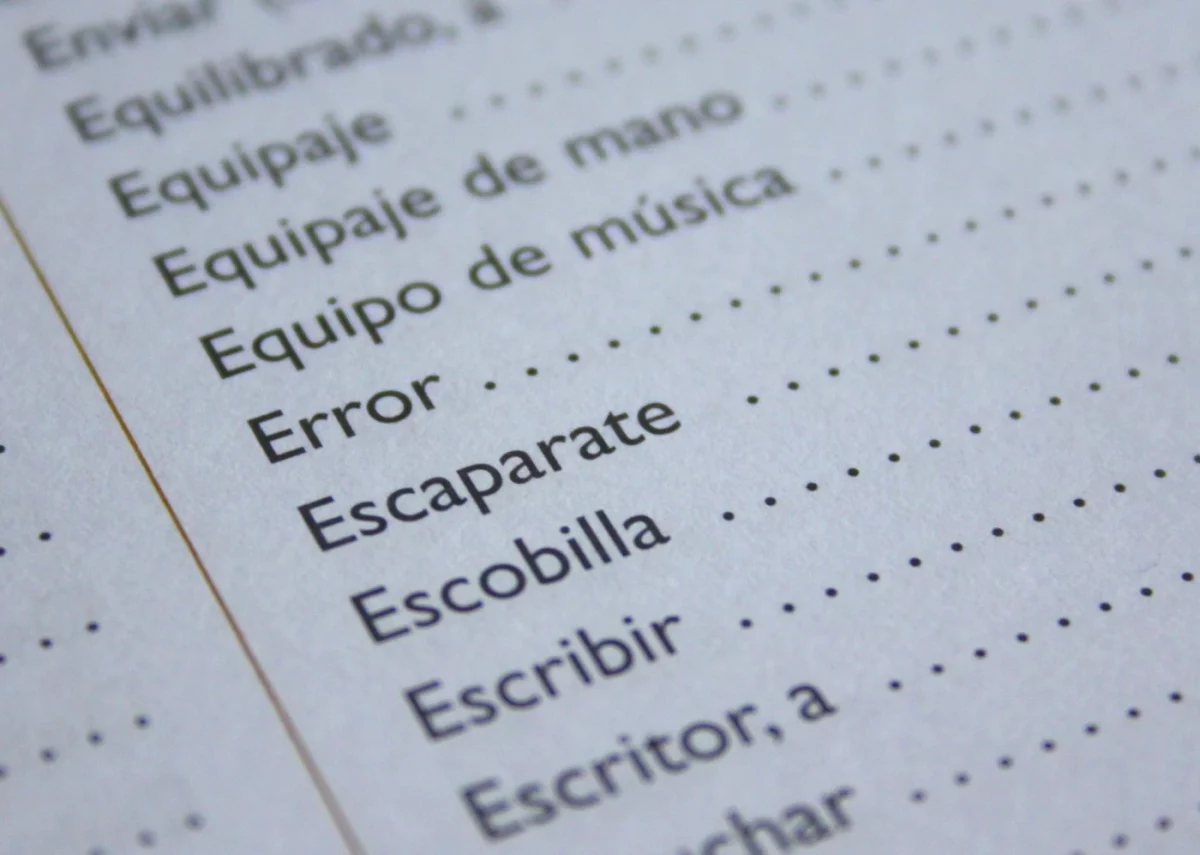
Learning Vocabulary
(Image source: pixabay.com) [CW] Learning vocabulary is obviously an important part of learning a language. In some ways, it’s also the most boring part, because it really just comes down to memorization. And memorization can be tedious. But memorization is really the first part of the process; to move new vocabulary from your short term memory into your long term memory, the trick is to find a meaningful to practice your new vocabulary, to make it work for you and your own needs and interests. That’s where the tedium ends, and the fun can begin.
Let’s break the process down, starting with the less inspirational memorization part. As you’ve probably guessed, it’s all about repetition.
- Repeat, repeat, repeat. Say the new words aloud to yourself several time. If you’re a visual learner, read the words as you say them to link them to a visual cue. Images can help here, too.
- Write it, don’t just say it. Do you remember writing words across a page several times when you were trying to memorize new vocabulary back in high school Spanish? There’s nothing wrong with that approach. In fact, since it’s more active than simply reading and repeating, you’re activating a few different skills at once, and the more you do that, the better you’ll memorize.
- Flashcards! Again, you’re probably no stranger to these oldies-but-goodies. You can go the old school route and write out vocab on index cards or pieces of paper. Create a deck of new words – try to keep it ten or so at a time – and first go from the target language back into English. Once you’ve cleared the deck and can identify the English translation of each word in the new, target language, reverse the process and go from English into the target language. You’ll find that this is more challenging, but it’s the next step toward memorization.
- You can take it with you. There are a number of great apps out there that you can use on your smart phone to help you with vocab memorization. Ankiapp is a great option, and so is Memrise. There are many others that allow you to make custom cards, so you can create lists for each lesson, or use decks that other users have created.
- Sort your new vocab. Vocabulary is learned more easily when words are grouped together in a natural category. Foods, Articles of Clothing, Places Around Town, Action Verbs, etc. Most language classes – including ABC’s – teach language in useful contexts, so you’ll have a lesson that deals with one theme – Ordering Food in a Restaurant, for example. That will give you a nice category of new words to focus on.
- Revisit. Just because you’re working in Lesson 7 doesn’t mean that you’ve remembered all of the vocab from Lesson 4. Go back and review regularly. Keep a list of the vocab that seems to escape you again and again, and keep slugging away.
The next step is to practice the new words. Obviously you’ll do this in class, but there’s no reason to limit it to that, especially since you’re probably only in class a small amount of time in any given week. You need to take ownership of your language learning outside of the classroom, too. Do the homework your instructor has assigned, listen to audio, but also make an effort to practice your new (and old) vocabulary in the context of your own life.
- Talk to yourself. When you’re out and about in your life and you spot something you know how to say, say it. Try to use it in a sentence. If you’re walking down the street, describe what you’re seeing to yourself, or narrate what you’re doing. Je marche dans la rue. (I’m walking in the street.) Je vois un magasin de vêtements. (I see a clothing store.) Les chemises sont belles. (The shirts are beautiful.) Mais elles sont chères! (But they’re expensive!)
- A sentence a day. Go over the group of words that you’re currently learning, and speak or write a sentence every day about each one. Simple is fine, but you can also challenge yourself to practice the grammar you’ve been learning.
- Keep a journal. Write a short description of your day, using as many new vocab items as possible. Don’t worry if you don’t know the right tense or all of the grammar. Making mistakes and not being sure is part of the journey.
- Look for vocab in the virtual wild. Type a bunch of new words that you’re focusing on into a search engine, and see what comes up. For example, if you’re learning food vocab, type a bunch of them into a search engine, and you’ll probably get a recipe or an article about food. See how much of it you can understand.
- Go above and beyond. Your instructor will probably give you homework related to the vocabulary you’re learning, but don’t stop there. Type “German vocabulary practice” into a search engine, and you’ll find a lot of free vocab practice games. They’ll probably even be divided into categories (food, clothing, etc.) so you can zero in on what you’re learning.
These are just a few suggestions, but you get the gist. All of these are things that don’t take too much time to do, or that you can do while you go about the regular business of your life. Make use of downtime (on the train, while you’re doing housework, even while you’re drifting off to sleep.) The more of these things you do outside of class, the quicker you’ll move new vocabulary into your long term memory, and the more you’ll get out of your lessons.